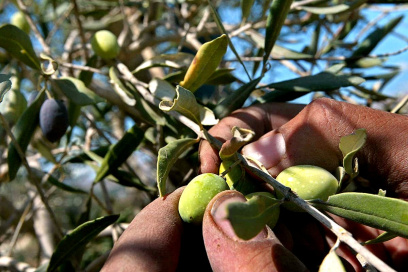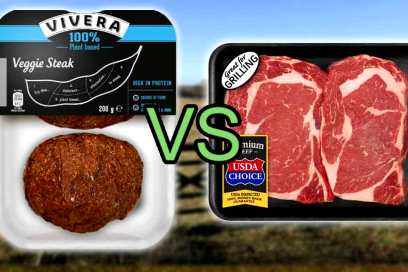Have you ever considered all of the potential advantages to going meatless for one week? From increased energy levels and digestive benefits, to enhanced athletic performance and even weight loss, the potential rewards could be endless. Adopting a plant-based diet offers numerous health advantages, as well as deliciously satisfying foods that your body craves. Yet one question remains unanswered - what happens if we decide not to include meat for just seven days? Answers to such a question can be astoundingly eye-opening. In this piece, we will explore the profound transformational effects of forgoing meat on your body, along with its associated science. So whether you are an established vegan or looking into exploring an herbivore-friendly menu - read on and discover its power by going meatless for even seven days!
I. Increased Energy and Mood
Vegan nutrition involves numerous considerations that must be taken into account when transitioning from a meat-based diet. "You are what you eat" could not be truer when it comes to plant-based eating; evidenced by an increase in energy levels seen when adding more fruits, veggies, and grains into one's daily food selections. Furthermore, plant-based foods tend to be easier for digestion while providing vital nutrients needed by our bodies for proper functioning.
Not only will switching to veganism boost energy levels, but cognitive function and mood also show significant improvement as a result of transitioning away from meat. Anti-inflammatory and antioxidant compounds found in fruits and vegetables play a vital role in controlling stress response thereby providing benefits such as cognitive enhancement and better mood regulation - research shows this diet also decreases depression risk significantly.
Feeling lethargic and emotionally depleted? Going meatless could be the healthy change you need! Eschewing animal products in favor of nutritious and whole-food diet will do wonders to promote both body and mind in an impactful and compassionate way. Even practicing veganism for just one week could give you newfound vigor to tackle all your to-do lists with enthusiasm!
Vegan nutrition is the pinnacle of healthy eating
Vegan nutrition requires one to follow a varied, well-rounded diet including fruits, vegetables, grains, legumes, nuts, and seeds. As one transitions into veganism, it's wise to monitor possible deficiencies like vitamin B12 which is critical for brain and nerve health. Consulting with a registered dietitian or nutritionist will ensure your vegan meal plan ticks all nutritional boxes. Adopting its philosophy that veganism encompasses animal welfare principles along with sustainability concepts that foster a more compassionate world is also integral.
II. Increased Energy and Mood
Digestion and efficient nutrient absorption are essential components of good health. By opting for plant-based foods rich in fiber, natural enzymes, and healthy fats for just one week instead of meat products, you can promote improved digestion and better absorption.
Health Advantages of Plant-Based Diets
Diets that consist largely of plant-based foods have numerous health advantages, including supporting digestive health. Not only can plant-based foods contain essential fiber that can regulate bowel movements and lower the risk of constipation; many fruits and vegetables also contain natural enzymes that can decrease inflammation in the gut and enhance digestive function.
The Role of Plant-Based Food Lipids
Plant-based food lipids play a key role in supporting healthy digestion. While animal-derived saturated fats may lead to inflammation and discomfort in digestion, healthier monounsaturated and polyunsaturated fatty acids found in many plant foods promote good gut function and contribute to optimal gut function.
Importance of Nutrient Absorption
Nutritious foods are essential to overall wellness, but proper nutrient absorption is just as essential. Meat can be challenging for the body to digest and assimilate due to high fat or partially processed content; by going meatless for at least some meals you give your body time to rest and recuperate while still enjoying healthy and efficient nutrient absorption.
Beware of Nutrient Deficiencies
Be wary, however, of any potential nutrient deficiencies that might occur on a plant-based diet. Iron is often lacking among vegetarians but can be more easily absorbed when taken in combination with vitamin C-rich foods and probiotic-rich products. By monitoring nutrient absorption rates you can ensure you're making the most out of your diet and improving overall wellbeing.
"Digestion and efficient nutrient absorption are essential components of good health."
"By opting for plant-based foods rich in fiber, natural enzymes, and healthy fats for just one week instead of meat products, you can promote improved digestion and better absorption."
- Plant-based diets contain essential fiber and natural enzymes for healthy digestion.
- Healthy plant-based fats promote good gut function and optimize nutrient absorption.
- Vegans and vegetarians should be aware of potential nutrient deficiencies and consider supplements.
III. "Digestive Health and Nutrient Absorption"
An experience like going meatless for even one week can bring about remarkable changes to your taste buds, opening your palate up to flavors you had no idea existed before. When exploring plant-based food sources like fruits and vegetables that contain complex flavors unlike artificially produced food products.
Plant-based diets not only satisfy your taste buds but can also bring about profound spiritual and personal changes. By opting out of eating meat, you are making a statement to those around you and supporting a more sustainable and compassionate world.
Creating a Strategic Plan
Examining each facet of your diet when making the transition to plant-based eating can be daunting, but creating a strategic plan will be essential in meeting any obstacles. There are many delicious plant-based recipes you can easily incorporate to create delicious and flavorful dishes like veggie burgers or hearty grains-based meals; plant-based cooking offers infinite culinary delights which will have you yearning for more!
At its core, plant-based diets involve choosing unprocessed, whole foods from nature to nourish yourself with. This can include an abundance of nutrient-rich fruits and vegetables as well as hearty legumes and grains void of animal products like meat, dairy and eggs - providing nourishment while simultaneously advocating animal welfare and decreasing your environmental footprint. By adopting this lifestyle you can provide yourself with essential nourishment while advocating animal rights advocacy while simultaneously decreasing environmental impact.
Considerations for Transition
Transitioning to a plant-based diet isn't as straightforward as it might appear at first. This requires taking into account many essential considerations, particularly if you are used to eating large quantities of animal products. You should aim for balance and variety in your meals by including fruits and vegetables alongside plant-based proteins like beans, lentils, tofu or tempeh.
- Include a variety of fruits and vegetables in your meals
- Incorporate plant-based proteins like beans, lentils, tofu or tempeh
- Watch portion sizes and calorie consumption
- Avoid overindulging in high-calorie, low-nutrient foods like sugary snacks or processed grains
"At the end of the day, the goal of plant-based eating is to nourish your body with whole, nutrient-dense foods that not only satisfy your taste buds but also promote overall health and wellness."
IV. Improved Taste Buds and Empowerment
An animal-free lifestyle offers a holistic approach to environmental sustainability and compassion. Adopting this way of living requires being aware of how our daily decisions and consumption habits impact on the planet; animal agriculture's environmental footprint is staggering, necessitating vast quantities of land, water and energy resources while contributing an alarming volume of greenhouse gas emissions via animal waste production.
Plant-Based Foods vs Animal Agriculture
Considered alongside the low carbon footprint of plant-based foods, animal-derived products have an enormous resource footprint. Vegan and vegetarian products crafted from materials like soy, nuts and grains consume far fewer resources and generate less waste, leading to reduced overall carbon output and thus being better for our planet.
Understanding our impact on the environment requires changes beyond diet alone, including adopting more sustainable habits such as using reusable bags, water bottles and public transit. Supporting eco-friendly companies and initiatives can have even larger effects both locally and globally; living a more eco-friendly life improves both our future, our communities livelihood and planet health in equal measures.
Resources and Support
As part of living this way of life, it is vital that we find reliable resources and support. Investigating vegan/vegetarian groups as well as consulting registered dietitians enables us to develop personalized meal plans while staying abreast of current nutritional trends and researching plant-based products.
Making a Difference
Individuals must make decisions based on their personal values and lifestyle preferences, which may mean switching to veganism altogether or including more plant-based foods into existing diets - decisions with ripple effects across society that promote sustainable development while protecting ecology.
"An animal-free lifestyle offers a holistic approach to environmental sustainability and compassion."
- Animal agriculture's environmental footprint is staggering
- Vegan and vegetarian products crafted from materials like soy, nuts and grains consume far fewer resources and generate less waste
- Supporting eco-friendly companies and initiatives can have even larger effects both locally and globally
- As part of living this way of life, it is vital that we find reliable resources and support.
- Individuals must make decisions based on their personal values and lifestyle preferences
Conclusion: The Benefits of Going Meatless for Your Health and Well-Being
Throughout this article, we have explored the many positive ramifications of going meatless for even one week on your health and overall well-being. These benefits range from increased levels of energy and digestive support to enhanced taste buds and an empowering sense of empowerment – each contributing to tangible improvements for mind and body alike.
However, reducing meat intake presents its own set of unique challenges. Deciding to go meat-free necessitates thought and consideration; depletion of nutrients could become an issue; therefore consulting a qualified professional in order to ensure complete nutritive sustenance is of utmost importance. Furthermore, staying informed with latest developments and research in plant-based nutrition could serve as motivation and source of motivation.
Abstaining from meat offers many tangible advantages, the greatest of which being an empowerment boost! By choosing this lifestyle you are making an active choice to prioritize holistic health, animal welfare, and planet sustainability; by engaging in this journey with mindfulness, connectedness, and perseverance it will bring forth positive transformation for generations to come.
So if you are ready to embark on the path towards living a meatless lifestyle, know that you aren't alone! With plenty of encouragement and support from others around you, you can experience all of the incredible advantages offered by plant-based nutrition, while embarking on an incredible journey toward optimal wellness and happiness like never before!




